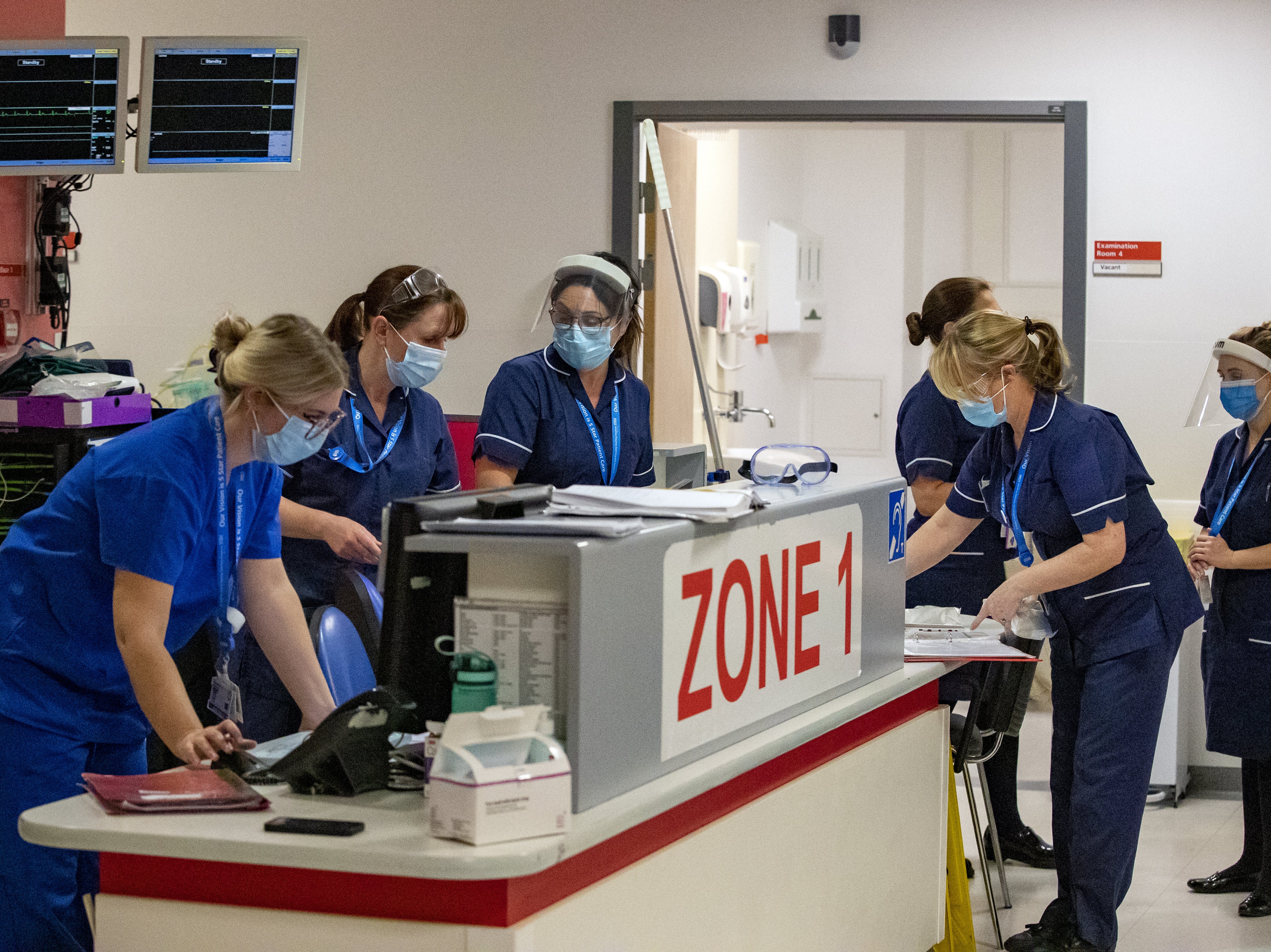A&E numbers in most deprived areas double that of richest
Higher A&E attendances amoung the poorest areas not down to reduced GP access, says the Royal College of Emergency Medicine
![Non-emergency line will be promoted to ease pressure on paramedics and A&E [file photo]](https://static.the-independent.com/2022/08/22/23/SEI120139597.jpg)
Patients in the poorest parts of England attend A&E at double the rate of those in the richest parts, new NHS data shows.
Statistics for A&E waits in 2021-22 showed 976, 284 patients waited more than 12 hours from arrival last year - a threefold increase compared to 2020-21 when 302,784 were recorded.
NHS Digital, which published the report, said it did not include 15,900 reports of patients waiting longer than 72 hours in 2021-22, as “it is considered unlikely that a patient would be in A&E for longer than 72 hours”.
There were a total of 3,013,316 A&E attendances in the top 10 per cent of deprived populations compared to 1,546,722 in the least deprived, according to the figures.
The figures for 2021-22 showed the rates of attendance in the poorest areas increased by 829,963 compared to 2020-21 levels, whereas the rates in the richest areas increased by 421,480 over the same period.
Speaking to The Independent, Dr Adrian Boyle, incoming president of the Royal College of Emergency Medicine, said having 15,900 patients wait more than 72 hours was “entirely plausible”.
“Those would be mental health patients waiting for transfer to a mental health ward … it’s grim and something no one wants to see … it is entirely plausible people with mental health problems will be waiting over 72 hours,” he said.
Dr Boyle said the gap between A&E attendances within the poorest populations compared to the richest was likely due to increased health needs among these patients, rather than other factors, such as reduced access to GPs.
“There are fairly poor areas which have relatively high numbers of GPs, such as Liverpool. Liverpool has more GPs per head than anywhere in Britain but still has a lot of deprivation.”
Rates of A&E attendances were highest among Black, Asian and other ethnic populations, compared to white patients. A rate of 31,930 attendances per 100,000 among white patients was recorded in 2021-22 compared to 38,177 in Asian, 41,000 in Black, and 81,998 in “other ethnic groups”.
The figures come amid increasing concern over the impact the cost of living crisis is going to have on health services and patients.
The Independent revealed this week that two hospitals have plans to open “warm banks” this winter, while a GP in Newham is set to open one within her practice next month.
The annual data shows the number of patients waiting more than 12 hours from arrival at A&E is nine times higher than the data on which monthly public reports are based.

A total of 976,284 waited more than 12 hours from arrival, compared to the 98,564 reported to have waited from a decision to admit them to hospital.
In August, The Independent revealed the UK Statistics Authority had asked NHS England and NHS Digital to make plans to publish the time from arrival data following the accusation that publicly available data was misleading.
The Royal College of Emergency Medicine brought the issue to UKSA’s attention in June and has also written to NHS England chief Amanda Prichard.
Earlier this month reports in the Financial Times suggested long A&E waits were driving excess deaths in England.
Excess deaths have continued to be high in England, with more than 1,000 additional deaths reported in recent weeks.
Dr Boyle told The Independent: “We are alarmed by this, the analysis by the FT is extremely plausible and indicates at least half of the 1,000 excess deaths a week are down to a collapsed emergency care system.”
Total waits for patients from the time they arrive at A&E, to when they’re assessed, treated and discharged are also measured.
Figures for 2021-22 showed 1,360 patients spent 22 hours in A&E from arrival to departure in March 2022, compared to 671 in April 2021.






Join our commenting forum
Join thought-provoking conversations, follow other Independent readers and see their replies
Comments